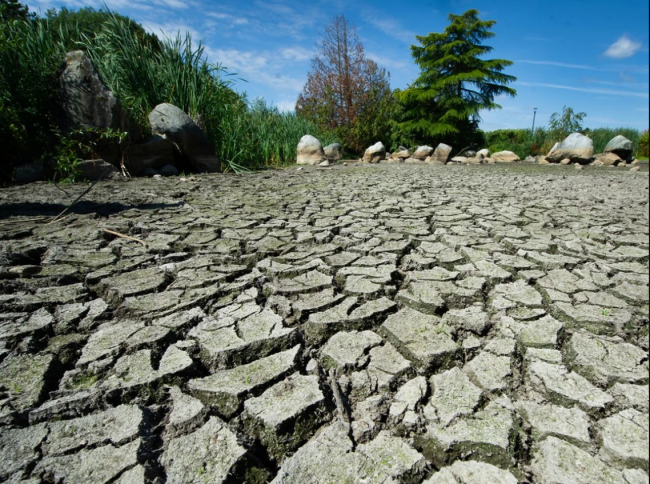Articles Menu

Sept. 8, 2023
Human-caused climate change tripled the likelihood of soaring temperatures this summer for half of the planet, according to a new study, as the world marked its hottest three months on record.
That record heat led to drought and catastrophic wildfires around the globe, including here in B.C., where hundreds of homes were destroyed in the Okanagan.
The report, from U.S.-based research group Climate Central, found 48 per cent of the world’s population, including those in western Canada, experienced at least 30 days from June to August with temperatures reaching levels that were three times more likely with carbon pollution from human activity — mainly burning fossil fuels.
To calculate this, scientists used the group’s new Climate Shift Index to analyze temperatures in 202 countries and territories around the world.
The index uses a peer-reviewed method to map the influence of human-caused climate change on temperatures across the globe by assigning levels from 1 to 5. To do this they used two models: one that shows what the temperature would be like without all the carbon pollution there is today, and another using current CO2 data.
Level 1 means that climate change is detectable, while 2 equals two times more likely and level 3 is three times more likely, etc. The index is capped at 5.
“It’s a good global indicator so we can start to confidently say whether climate change is having a dominant influence on the day’s temperatures,” Andrew Pershing, vice-president of science at Climate Central, said in an interview Thursday.
The study found there were 24 days in B.C. and 16 days in Yukon this summer that were at an index level 3 or higher, which indicates that climate change made those temperatures at least three times more likely.
Overall, most of the world’s population (98 per cent) experienced temperatures that were two times more likely to have been caused by carbon pollution, the report said.
Researchers took into account the fact that the temperature globally is estimated to be 1.27 C warmer than pre-industrial times and then estimated the likelihood of those temperatures in a hypothetical world where humans have not spewed tons of carbon dioxide into the atmosphere.
“So what we’re doing is then looking at how much climate change has increased the odds of that day’s temperature,” said Pershing. “In every country … we saw temperatures that would be difficult — and in some cases nearly impossible — without human-caused climate change.”
He said the index was developed over the last year so they don’t have data from 2021, for example, when B.C. experienced its worst heat dome that led to more than 600 deaths. He added that the group is planning to examine historical data, and will release a report on that at a later date.
“B.C. and Northwest Territories definitely had a lot of days where we could really see climate change happening and it goes back to when the first heat wave started to roll through and the wildfires started,” said Pershing.
“And we saw that when those fires kicked off, we were usually seeing climate shift index levels of 2 or 3. We know that heat is only one factor that drives fire, but it was an indication that the climate this summer in Canada has been really altered by climate change and the fires are a consequence of that.”
“I think it’s clear that we have to double down on reducing our dependency on coal, oil and natural gas r these conditions are only going to get worse,” he said.
On Wednesday, the EU’s Copernicus Climate Change Service and the World Meteorological Organization, said Earth just had its hottest three months on record.
From June through August, the average global temperature was 16.8 C above average, the agencies said. Last month was also the hottest August on record, estimated to be 1.5 C hotter than the pre-industrial average for the 1850 to 1900 period. It also followed the hottest June and July on record.
“The dog days of summer are not just barking, they are biting,” United Nations Secretary-General Antonio Guterres said in a statement. “Climate breakdown has begun.”
So far, 2023 is the second hottest year on record, behind 2016, according to Copernicus.
World Meteorological Organization secretary-general Petteri Taalas noted that all of this is happening before the full warming impact of the El Niño event, which typically plays out in the second year after it develops.
“The northern hemisphere just had a summer of extremes — with repeated heatwaves fuelling devastating wildfires, harming health, disrupting daily lives and wreaking a lasting toll on the environment.”
ticrawford@postmedia.com
— with file from Associated Press
[Top: File photo showing drought conditions in B.C. PHOTO BY ARLEN REDEKOP /PNG]